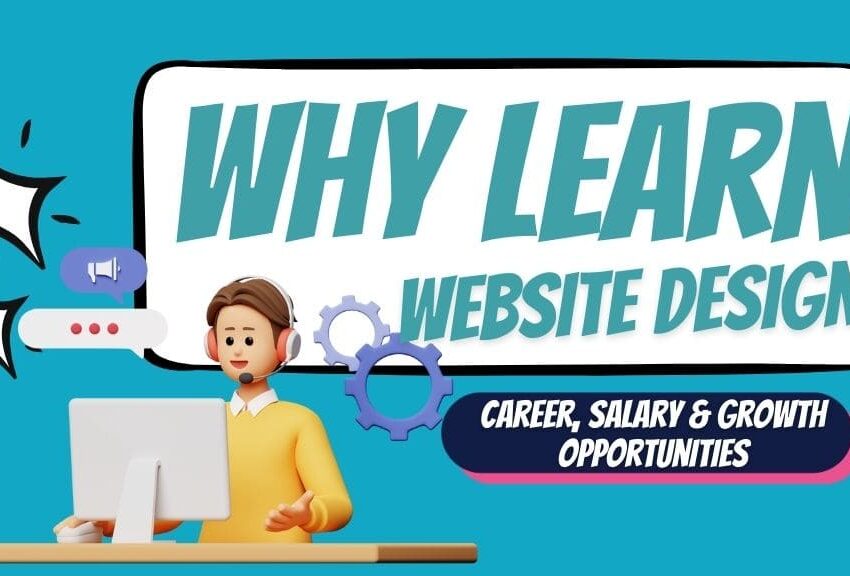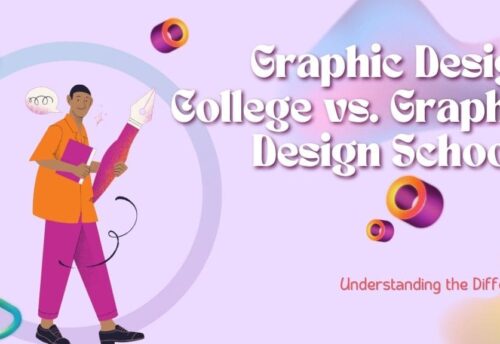
Why Learn Website Design? Career, Salary & Growth Opportunities
In the current digital era, it is imperative for individuals, companies, and entrepreneurs to have an online presence. And website design is the foundation of that presence. Everybody needs a website that looks excellent, loads quickly, and functions flawlessly on all devices, whether they are small local businesses or well-known global companies.
Because of this, one of the most sought-after skills in the modern world is website design. You’re in the perfect place whether you’re considering learning web design as a student, freelancer, or someone looking to change careers. Along with great pay packages, freelancing independence, and robust professional advancement, this field also offers creativity and flexibility.
Let’s examine the benefits of learning website design for your future as well as what employment outcomes to anticipate.
What is Website Design?
Website design refers to the visual layout and user experience of a website. It combines creative elements (like colors, fonts, images) with functional aspects (navigation, responsiveness, accessibility). A good web designer ensures that a site is aesthetically pleasing, user-friendly, and optimized for different screen sizes.
Modern web designers often learn tools like:
- HTML, CSS, JavaScript
- Design software like Figma, Adobe XD, or Canva
- Website builders like WordPress, Webflow, or Shopify
Why Learn Website Design?
1. High Demand Across Industries
Every business, school, NGO, or startup needs a website. Whether it’s to showcase services, sell products, or build a brand—a well-designed website is non-negotiable.
From healthcare to eCommerce, entertainment to education—web designers are needed everywhere.
2. Excellent Freelancing & Remote Work Opportunities
Want to work from home or travel the world while you earn?
Web design is a top skill on freelance platforms like Upwork, Fiverr, and Freelancer. Many clients look for designers to create:
- Landing pages
- Portfolio sites
- Blog templates
- E-commerce websites
3. Lucrative Salary Packages
Website designers can earn handsome salaries, especially if they specialize in UI/UX, front-end development, or responsive design.
4. Short-Term Courses, Long-Term Benefits
You don’t need a 3-year degree to become a professional web designer. With the right training and consistent practice, you can master web design in just 3 to 6 months.
Many institutes and online platforms offer beginner-to-advanced level courses, often with:
- Live projects
- Portfolio-building sessions
- Internship & placement support
Skills You’ll Learn in Website Design
Here’s a glimpse of the essential skills taught in most web design programs:
- HTML & CSS – Structure and styling of websites
- Responsive Design – Making sites mobile-friendly
- JavaScript Basics – Interactivity on webpages
- Design Tools – Figma, Photoshop, Adobe XD
- User Experience (UX) Principles – Creating intuitive user journeys
- WordPress or Website Builders – Easy ways to design without coding
- SEO Basics – Making your website search-engine friendly
As you grow, you can specialise further in:
- UI/UX Design
- E-commerce Design
- Motion Design & Animations
- Front-End Frameworks like React or Vue
Growth Opportunities in Web Design
Web design is not a dead-end career. In fact, it’s constantly evolving. Once you master the basics, you can level up into various roles:
- UI/UX Designer
- Front-End Developer
- Creative Director
- Product Designer
- Design Strategist
- Freelance Consultant or Agency Owner
If you love creativity, logic, problem-solving, and working with technology—web design is a future-proof career.
Who Should Learn Web Design?
Web design is perfect for:
- Students or freshers looking for a creative tech career
- Graphic designers wanting to expand into digital media
- Freelancers aiming for high-paying clients
- Entrepreneurs who want to build their own websites
- Homemakers or professionals seeking remote, flexible jobs
No coding background? No problem. Many courses teach web design with drag-and-drop tools, and coding can be learned gradually.
Final Thoughts
Learning website design isn’t just about putting pretty elements on a page. It’s about crafting digital experiences that influence, inform, and inspire. It’s one of the few fields where creativity meets technology—and the demand is only growing.
Whether you want to start your own design agency, work with top IT companies, or freelance on your own terms, learning web design gives you the skills and freedom to shape your own future.


